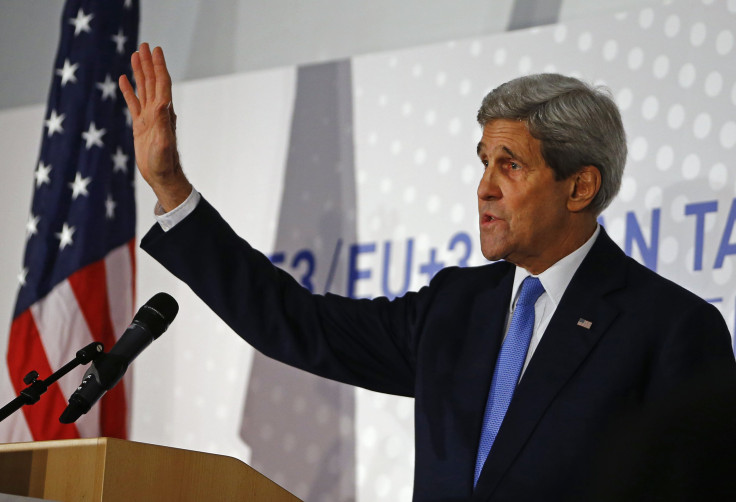Iran Nuclear Deal Extended: 5 Reasons Why Diplomatic Talks Didn't Meet Deadline

Feverish talks in Vienna failed to reach an agreement this week over dismantling Iran's nuclear program. The negotiations between Iran, the United States, Russia, France, the United Kingdom, Germany and China will now be extended until June 30, 2015. A number of disagreements still stand in the way of a comprehensive deal.
Monday's deadline was itself an extension of a July 20 deadline set by the Geneva Agreement, which started talks this time last year. The U.S. and its partners seek to limit Iran's nuclear program so that it would be unable to produce weaponized nuclear material. In return, the U.S. would ease or end sanctions that have crippled the Iranian economy. The talks are a culmination of years of fruitless negotiating and politicking by both sides. Below are five reasons why the negotiations failed to meet the Monday-night deadline.
1. The two sides cannot agree over how many centrifuges Iran should have: Iran currently has 10,000 nuclear centrifuges that can enrich uranium to the levels needed for a nuclear weapon. The U.S wants to shut down 8,000 of those centrifuges, but is willing to allow 4,500. Iran wants no less than 8,000 centrifuges operational. Iranian President Hassan Rouhani said this week that “the centrifuges are spinning and will never stop,” according to the New York Times.
2. The coalition of negotiating countries can’t come to an agreement: France has expressed concern over a letter U.S. President Barack Obama sent to Supreme Leader Ayatollah Khamenei over shared security interests, including how to stop the Islamic State group, according to the Wall Street Journal. Russia has been in talks with economic deals with Iran that could undermine the effectiveness of sanctions, leaving the rest of the negotiating group without much power behind their punch.
3. The U.S. and Iran cannot agree on how many of the sanctions should be lifted: Iran’s state-owned Press TV said the U.S. is under pressure from the “pro-Israeli” lobby to keep the U.N. sanctions in place. Hardliners in Iran’s parliament want sanctions lifted as soon as possible, even if negotiations continue, according to CNN.
4. The U.S. can’t guarantee that a Republican Congress won’t nix the deal: Republican leaders believe that allowing Iran to have any sort of nuclear capabilities will eventually lead to a weapons race, according to Reuters. Republican U.S. Sen. John McCain, Lindsey Graham and Kelly Ayotte said in a statement that the U.S. should impose more sanctions as negotiations continue and that Congress should have the final say on any agreements with Iran. The Obama administration said imposing more sanctions on Iran will only complicate and possibly sink further talks.
5. Iran is beholden to hardliners at home: The deputy speaker of Iran’s parliament, Mohammad Hassan Abutorabi-Fard, called the U.S. an “unreliable” partner in the negotiations, while another Iranian lawmaker said the U.S. is “sabotaging efforts” in Vienna, according to the New York Times. Their comments were met with cheers of “Death to America” from parliament members. Khamenei, who has ultimate say in the deals, said on Tuesday that he is pessimistic about the likelihood of talks ending with a lasting agreement, but vocalized support for the extended talks on Tuesday.
© Copyright IBTimes 2024. All rights reserved.






















